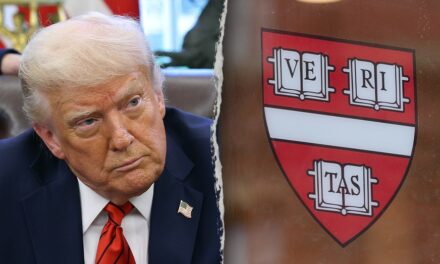The legal saga surrounding Alex Murdaugh, a former South Carolina attorney convicted of murdering his wife and son, continues to unfold, as his lead attorney has raised serious allegations regarding the integrity of the trial. These claims include suggestions of jury tampering and the discovery of previously undisclosed text messages that could potentially overturn the conviction and prompt a new trial.
Murdaugh, whose case has captivated national attention, was sentenced to life in prison following a highly publicized trial. The prosecution painted a picture of a man in desperate straits, battling personal and financial demons, and ultimately resorting to murder. Murdaugh’s criminal saga reflects a broader narrative of familial tragedy, power, and betrayal, making it all the more sensational.
At the center of the new developments is Jim Griffin, Murdaugh’s lead attorney, who has claimed that the jury may have been influenced improperly during the trial. Griffin contends that the legal team has uncovered what they believe to be substantial evidence that the jury may have been subjected to external pressures or influences that compromised their decision-making process.
One of the cornerstones of Griffin’s argument hinges on newly discovered text messages that were not available during Murdaugh’s initial trial. These messages, he argues, hold critical information that could cast doubt on the prosecution’s narrative. The texts reportedly include communications between jurors and individuals outside the courtroom, raising questions about the deliberation process and the jurors’ ability to remain impartial.
“What we are uncovering is nothing short of alarming,” Griffin stated in a press conference. “If we find that the jury was manipulating or pressured during the trial, it undermines the very foundation of our judicial system.” Griffin’s team is actively seeking to obtain all electronic communications that involved jurors during the trial to ascertain whether external influences were indeed present.
In addition to the allegations of juror misconduct, Murdaugh’s legal team has also pointed to discrepancies in the evidence presented by the prosecution. They argue that vital pieces of information and alibis were either overlooked or suppressed. Murdaugh’s defense maintains that any reasonable person would question the prosecution’s timeline of events and the credibility of the evidence presented.
The prosecution, on the other hand, has staunchly defended the integrity of the trial, asserting that the evidence was compelling and that the jury’s verdict was just. They argue that the trial was conducted under strict legal guidelines, with both sides given ample opportunity to present their cases. The lead prosecutor, Creighton Waters, has expressed confidence in the jury’s decision, deeming it a reflection of the strong evidence against Murdaugh.
The Murdaugh trial became notable not only for its shocking allegations but also due to its connections to the wealthy and influential Murdaugh family, who long held prominence in South Carolina’s legal circles. Given the family’s history, many have scrutinized the layers of potential corruption, privilege, and legal maneuvering that may have pervaded the trial. With allegations of jury manipulation now surfacing, the question of whether Murdaugh received a fair trial is at the forefront of public debate.
Griffin and his team are gearing up to file a motion for a new trial as they compile evidence that includes the jury text messages and any other relevant documents that could support their claims. They assert that fundamental principles of justice demand a thorough examination of these new developments to ensure that the truth prevails.
Legal experts have noted that the bar for overturning a conviction is quite high; however, if the evidence of jury tampering is substantiated, it could prompt the court to reconsider Murdaugh’s conviction. The appeals process is often drawn out and complex, involving a rigorous review of the evidence and legal arguments presented, both in the initial trial and in the potential appeal.
The notion of hidden texts and jury misconduct places the Murdaugh case firmly back into the spotlight, reigniting the discussion around judicial ethics and the deeply rooted issues surrounding the intersections of wealth, power, and the legal system in America. Many view this as an opportunity to reflect on how justice can sometimes be influenced by factors beyond legal merit, drawing parallels to broader societal issues.
As the legal community watches closely, the implications of these revelations could extend far beyond Murdaugh himself, sparking a renewed conversation about fairness in high-profile cases. The Murdaugh trial drew significant media attention and public interest, and continued scrutiny is likely to follow any potential retrial.
In conclusion, while Griffin’s claims are just emerging, they have the potential to reshape the narrative of the Murdaugh case significantly. As more information comes to light, it will be crucial to see how the court responds to these allegations and whether they merit a new opportunity for Murdaugh to present his side of the story. The pursuit of truth and justice remains a cornerstone of the legal system, and cases like this challenge the institution to uphold those values amidst growing skepticism.
The Murdaugh saga is still unfolding, and as the appeal process begins, the eyes of the nation will undoubtedly remain focused on this captivating case. Everyone involved understands the gravity of the situation and the wider implications it may carry regarding the faith in judiciary processes across the country.
































